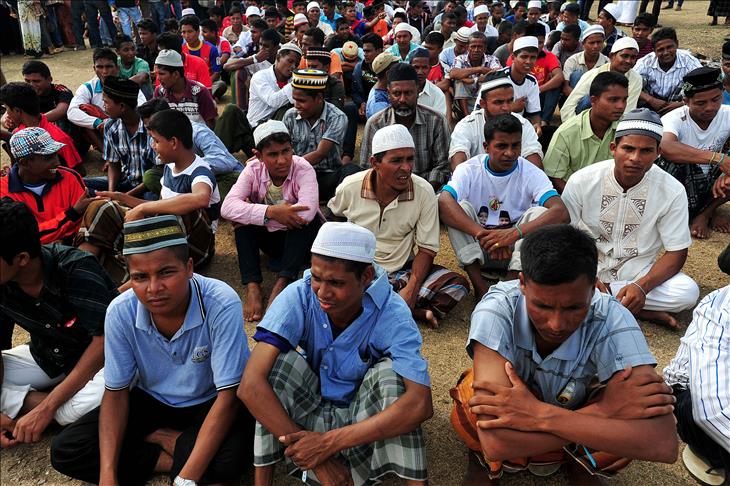
by David Williams
YANGON
Many Rohingya Muslims living in Myanmar's western Rakhine State are refusing the government’s offer of “green cards” -- frustrated with a system that refuses to recognize their ethnicity and renders them stateless.
A management committee member at an Internally displaced persons camp for Rohingya in the north of Sittwe has told The Myanmar Times that all ten members of his family had turned in their previous white cards but would not be bothering with the green ones.
“From past experience we know this card cannot contribute to us getting citizenship status,” U Thein Maung said, according to the Times on Thursday.
“We had been living for many years with national registration cards, but the government took them and then issued us white cards. Now white cards are useless and they create green cards. We don’t believe in any temporary cards. We want to be recognized as citizens.”
White cards -- temporary identity cards -- were first issued in the early 1990s as a result of the 1982 Citizenship Law, which had established three categories that mostly excluded Rohingya.
But in February this year, the estimated 800,000 “white cards” held by stateless Rohingya and other ethnic groups were revoked along with the rights of all holders.
Prior to the April 1 deadline to surrender their documents, some 390,000 people -- 300,000 of whom them Rohingya -- have turned the white cards in, and were in return given receipts which they are supposed to trade for green cards.
The green cards -- formally called “identity card for national verification”--- are valid for just two years.
To change the receipt for a card, however, the applicants must provide evidence of three generations of residence in Myanmar and renounce the term Rohingya.
Myanmar does not recognize the term Rohingya, preferring to use "Bengali" which suggests the Muslim ethnic group is from Bangladesh across its western border.
Providing such evidence of residence is also near to impossible for Rohingya who lost everything when their homes were torched in the communal violence of 2012, reported the Times.
The Times added Thursday that the 2014 nationwide census -- "which mostly enumerated only Rakhine Buddhists in the state because of the danger of violence" -- had found that 37.7 percent of those surveyed had no form of identification.
Rakhine state’s Immigration and Population Department began issuing the new cards in 14 townships June 5, but since then only 37 cards have been issued, according to department director U Khin Soe.
U Khin added that of the 892 applications for citizenship received since January this year, just 70 had been processed and forwarded to a government committee pending final approval.
Rohingya Muslims have suffered systematic discrimination in Myanmar for decades, but their plight has ironically become worse since the reformist government of President Thein Sein came to power in 2011.
His political reforms have been accompanied by outbreaks of anti-Muslim rioting that first flared in Rakhine, leaving hundreds dead and more than 140,000 Rohingya confined to internal displacement camps.
In recent years, around 130,000 Rohingya have fled the country by sea, according to the United Nations.
Anadolu Agency website contains only a portion of the news stories offered to subscribers in the AA News Broadcasting System (HAS), and in summarized form. Please contact us for subscription options.

